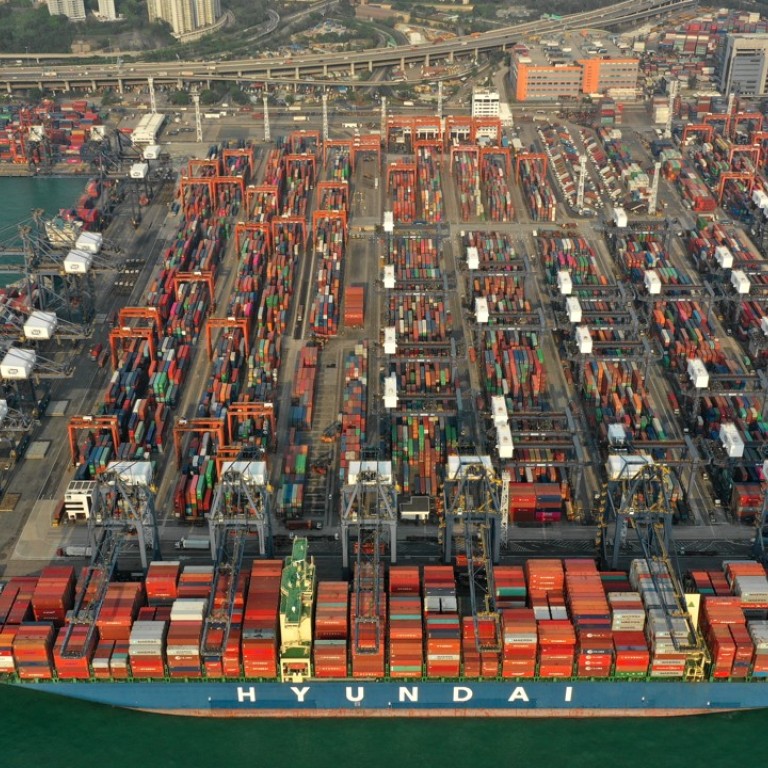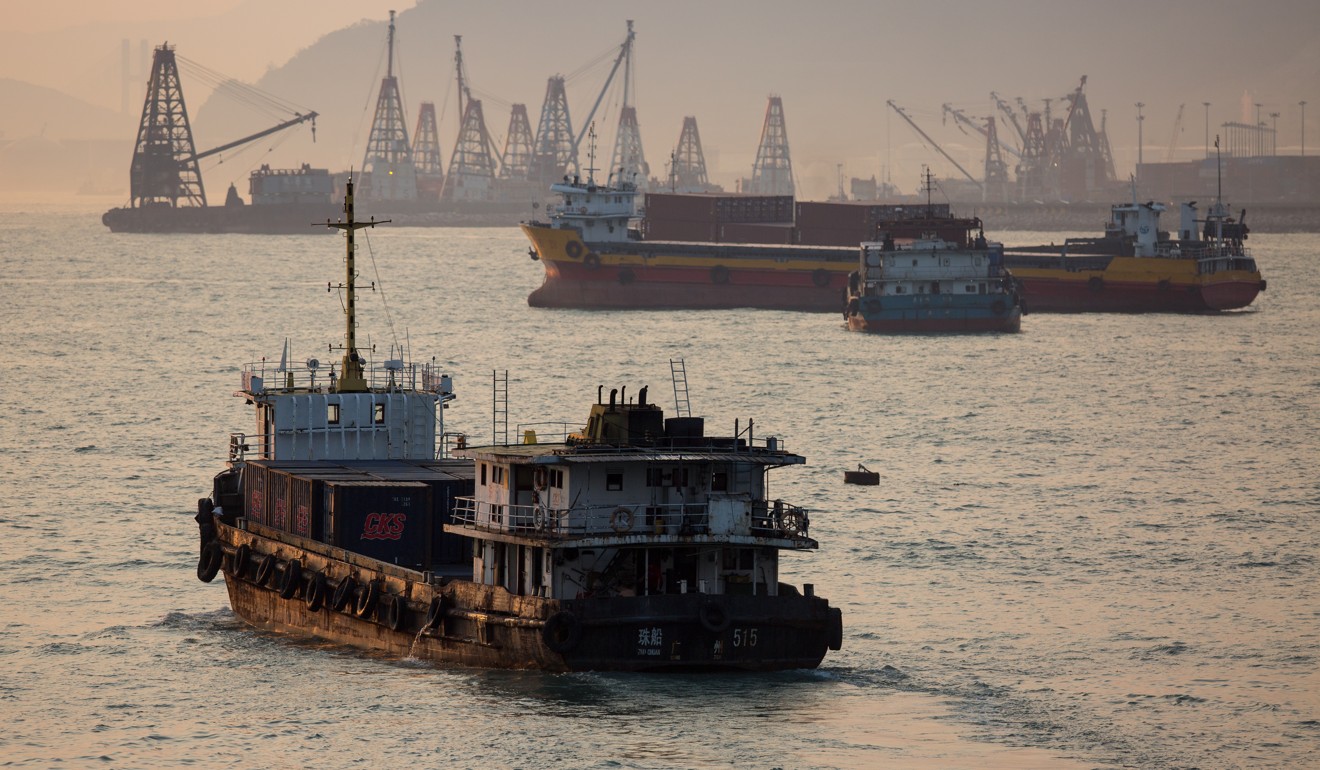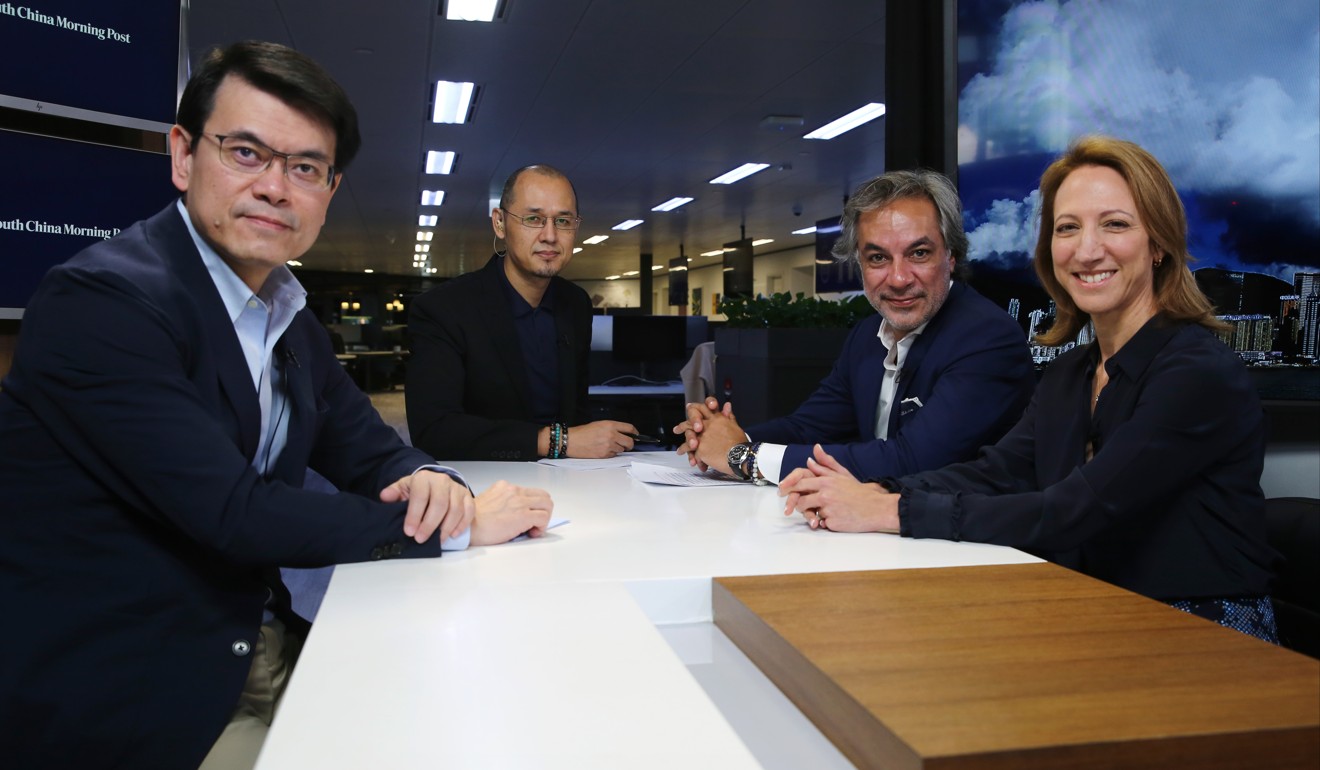
Exclusive | Hong Kong commerce minister warns of long US-China trade war but says American investors will not abandon city
Edward Yau says worst of the conflict could lie ahead but insists push must continue for global free trade
Investors are not pulling out of Hong Kong, and American business dealings with it on a practical level should continue, regardless of the raging US-China trade war and the political belligerence from Washington, the city’s commerce minister and business leaders say.
In a panel discussion with the South China Morning Post on Sunday, Secretary for Commerce and Economic Development Edward Yau Tang-wah insisted the campaign for free global trade must continue, but also warned “the situation could get worse before it gets better” and the fallout would “play long”.
Yau, who flew with a trade delegation to Washington last month to meet Secretary of Commerce Wilbur Ross and other officials from US President Donald Trump’s administration, said his American counterparts had assured him they would honour their commitment to a separate trading status for the city under its “one country, two systems” governing policy.
“In mid-February, Hong Kong was taken hostage as part of China in trading status at the beginning of the trade war,” Yau said. “In meeting with Wilbur Ross, I reminded him that Hong Kong has a different trading status and that is fully recognised.”
However, the city will not escape collateral damage because of its middleman role. Almost half of Chinese goods shipped via Hong Kong to the US – the city’s second-largest trading partner – will be hit by the tariffs.
China’s central bank to pump US$110 billion into economy as US trade war intensifies
Hong Kong traders will be put to the real test from January 1, 2019 when the 10 per cent tariffs Trump imposed on US$200 billion worth of Chinese goods in September will be raised to 25 per cent. This is in addition to previous rounds of tit-for-tat tariffs.
One of the measures involves the SME Financing Guarantee Scheme to help firms obtain funds from lenders using an 80 per cent loan guarantee. HSBC has agreed to cut joining fees for applicants.

Yau said he had cautioned his American counterparts that the 25 per cent tariffs would not be “swallowed” by producers, who could not even get a double-digit profit margin on goods they produced.
Aron Harilela, chairman of the city’s largest business group, the Hong Kong General Chamber of Commerce, was concerned about what lay ahead, but not worried by the anti-China rhetoric from the Trump administration.
‘No disaster scenario’: trade war isn’t denting economists’ optimism about US growth
Harilela, who was in Yau’s delegation to Washington, said US Republican and Democrat politicians understood tariffs were “a horrible ... blunt weapon” to address other issues, but that was the only tool they had to rebalance the shift of power, and they were still committed to trade.
He said members of the chamber were not hit yet, but faced with uncertainty, they were holding back from making investments.

“If the tariffs go from 10 per cent to 25 per cent, they will start cutting costs. In a rising interest rate environment, they may look at lay-offs when their profit margins are going to decrease; that’s going to affect end-consumers as they will pass the costs to them,” Harilela said. “Take the example of exports into America – American consumers are going to suffer as companies cannot take the 25 per cent tariff.”
“Tough and gets tougher” was the forecast for the next six to 12 months from Tara Joseph, president of the American Chamber of Commerce in Hong Kong, who also attended the Washington talks.
Help Hong Kong businesses weather US-China trade war with quicker free-trade deals, government urged
But investors were not pulling out of Hong Kong or mainland China, she noted.
“They see Asia as important,” she said. “Hong Kong is an important place and it is not the time to abandon ship.”
Yau took the maritime analogy further.
“In the high seas, there will be stormy weather every now and then, and more often because of climate change,” he said.
“But if we are on the same boat, do we sort of retreat back to the port, not doing trade any more because of the hurricane? Or even worse, at a time when there is gusty wind and stormy weather? I think we should [continue to trade].”

